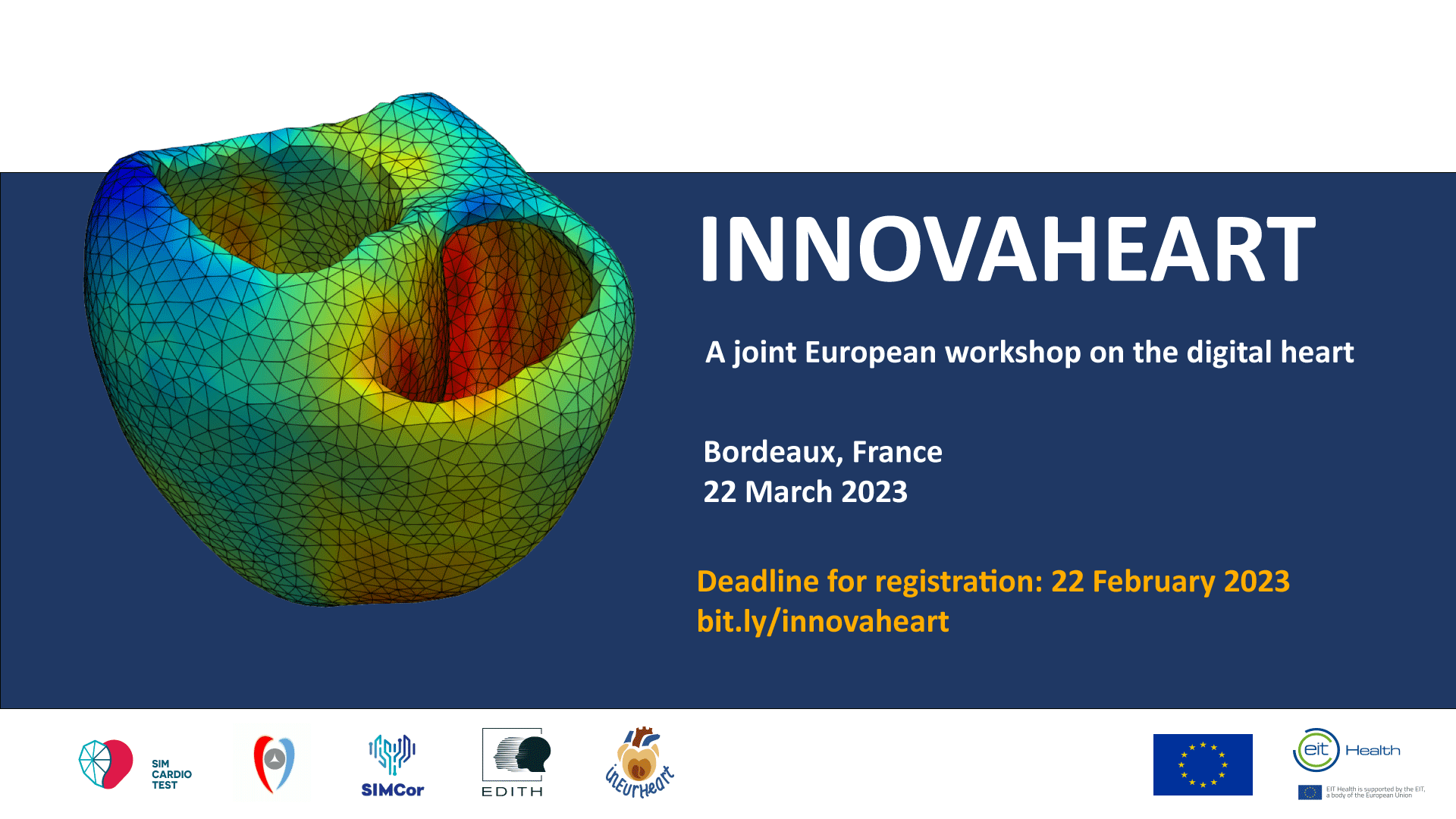On Wednesday 22 March 2023, INNOVAHEART, a one-day workshop on the digital heart, will take place in Bordeaux, France to gather the European scientific community, start-ups, SMEs and industrial companies working in the field. The workshop is co-organised by the EU-funded projects SimCardioTest, SimInSitu, EDITH, inEurHeart and SIMCor, with the support of EIT Health, a knowledge and innovation community of the European Institute of Innovation and Technology (EIT), co-funded by the European Union.
Cardiovascular diseases are the leading cause of death worldwide, with 15 million people living with heart failure in Europe alone. Among those, the prevalence of heart failure alarmingly continues to rise. While new solutions are urgently required, it is especially difficult to discover new drugs or devices. Furthermore, the regulatory requirements for the approval of novel devices are ever-increasing.
In-silico computational approaches can be used to predict complex clinical scenarios and test medical devices and medicines on virtual populations. Those models allow meeting the rigor of regulatory demands so that the associated risks and flaws can be addressed before substantial investments in clinical trials.
The workshop will be a combination of lectures, roundtables and live demonstrations, with opportunities for knowledge exchange and discussion on the state of the art, exploitation and regulatory approval perspectives, contributing to the creation of an e-health ecosystem dedicated to cardiovascular diseases and to the well-being of the heart.
The participation is open upon a registration fee to all stakeholders in the field, including cardiologists, biomedical engineers, researchers from academia, SME and industry, regulatory bodies.

The programme
The workshop will focus on the added value that in-silico technologies can have in healthcare for several dimensions:
- Availability of reliable mechanistic knowledge, including open-source software
- Quality and quantity of cardiac-relevant data
- Credibility of predictions and result standardisation
- Health policy and regulatory frameworks.
Appropriate time and space will be dedicated to discussions for creating a cross-sector ecosystem, as well as for exchanging tips on methodological tools to generate virtual cohorts and specific challenges of regulatory bodies in Europe and the US for in-silico clinical trials or for accessing clinical data.
The technological aspect of digital healthcare open-source platforms and software will also be included. Besides, a live survey will be organised to collect opinions of the community on challenges and solutions needed to further develop in-silico technologies for cardiac care.